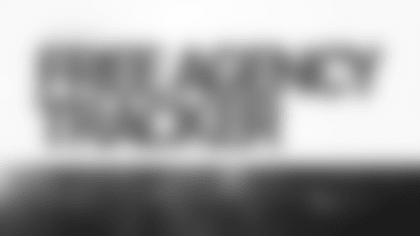Jaguars Chief Financial Officer Bill Prescott counted off the positives. He needed only one finger for what he doesn't like about the NFL's new collective bargaining agreement/revenue-sharing plan.
"Number one, it gives us labor peace for 4-6 years," Prescott said. Either party, the players or the owners, can opt out of the new CBA after the fourth year; following the 2009 season.
Yeah, that's good for everybody; the league, the players, the fans, the television networks, etc. The NFL sure is a lot of fun. That fun, however, comes at a heavy price and that's where Prescott's interest becomes intense.
Are there enough good things about the new CBA and revenue-sharing agreement to satisfy the Jaguars? What are those good things?
"It gives low-revenue clubs a safety net," Prescott said, going right to the heart of the new revenue-sharing agreement that is most satisfying for the Jaguars.
The safety net of which Prescott speaks comes in the form of a limit on player costs, which will not exceed 65 percent of a team's gross revenue. It's viewed as a safety net because it will prevent the Jaguars from falling into an uncompetitive state.
Here's a practical example of how the limit on player costs will work: Say the Jaguars' gross revenue for a year is $175 million and its salary cap spending is $118 million, which is what teams will spend this year on player salaries and benefit packages. That $118 million would represent 67.5 percent of the Jaguars' gross revenue, which means $4 million would be returned to the team from an incremental revenue-sharing pool.
Why does that prevent the Jaguars from fielding an uncompetitive team? Because high-revenue teams such as the Redskins and Cowboys won't cause low-revenue teams such as the Jaguars to be unable to spend to the salary cap limit teams such as the Redskins and Cowboys will have established. It's a cap within a cap that prevents high-revenue teams from transferring their player costs on to the low-revenue teams in the form of salary cap increases.
Who funds that incremental revenue-sharing pool? The high-revenue teams will fund the majority of that money.
Two-thirds of the funding mechanism for the incremental revenue-sharing pool will be provided by the top 15 revenue teams. The top five revenue teams will each contribute $3 million a year to the incremental revenue-sharing pool. The next five will each contribute $2 million; the next five will each contribute $1 million. The final funding will come from new national revenue deals.It was this incremental revenue-sharing strategy that sold Jaguars owner Wayne Weaver on the whole plan. It was a major setback for the Jaguars that the league was not able to agree to a plan to increase the sharing of local revenue, but the plan the league put into place in Dallas on Wednesday night got Weaver's approval because it means the Jaguars will have the means to remain a winner.
"No new local revenue-sharing," Prescott said when asked what he doesn't like about the new revenue-sharing plan.
"I think it's good for the league and we got one of the key things we were looking for as a small-market team, the safety net that will allow us to field a competitive team," Prescott said in overview of the agreement.
What a team does on the field would still seem to be the number one concern.














